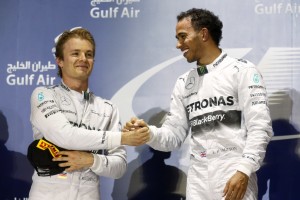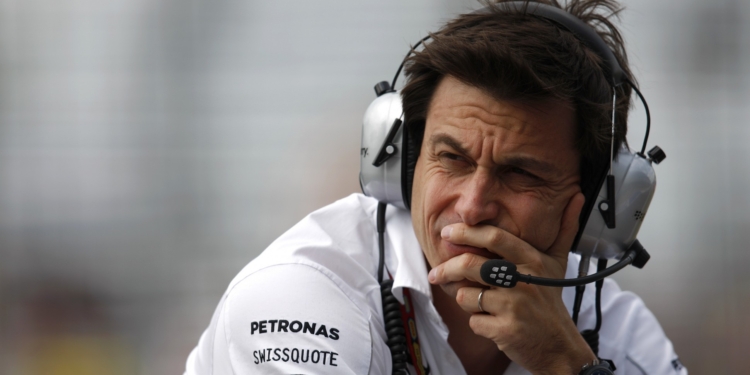Mercedes motorsport boss Toto Wolff believes F1 drivers will make more errors during grands prix in 2016 due to the increased restrictions on radio communication for this season. Although Wolff feels the regulation changes to radio transmission in F1 may be too stringent, he concedes the drivers will be less “remote-controlled” and more prone to making mistakes or wrong strategic decisions during a race. “Because of the new regulations, we are so much more restricted in passing on information to the drivers during the race,” said Wolff.
“Strategy, engine-mode deployment, tyre choices, even up to a point pit stops, a lot will be down to the driver to decide. Things will be less optimised by algorithms and engineers, and it will give room for error. What I like is that it is the driver who will be taking decisions, and not remote controlled from the garage.”
 Last week world champion Lewis Hamilton expressed doubts over the need to cut back so much, saying he didn’t “understand why they did that”, but Wolff described it as a good move to make the racing less predictable. In the past Mercedes has often chosen the same strategy for its drivers to ensure a sense of fair play in the battle between Lewis Hamilton and Nico Rosberg. Now there is the scope for a driver to act on instinct and make choices for himself over the course of a grand prix.
Last week world champion Lewis Hamilton expressed doubts over the need to cut back so much, saying he didn’t “understand why they did that”, but Wolff described it as a good move to make the racing less predictable. In the past Mercedes has often chosen the same strategy for its drivers to ensure a sense of fair play in the battle between Lewis Hamilton and Nico Rosberg. Now there is the scope for a driver to act on instinct and make choices for himself over the course of a grand prix.
“It’s an absolutely positive step,” said Wolff. “The target was to make things less predictable, more variable, and this is what’s going to happen. There is the potential now for races between them to unfold in a different way. Take the so-called ‘strat’ modes on an engine that make quite a substantial difference in terms of efficiency in making it through a race. Obviously you only have certain allowances in various power modes, but the more powerful you run, then the better you defend, the better you attack. But if a driver needs to judge himself when to use what it will make for different strategies, and drivers will use different power modes at different stages of the race which will provide more differences between cars, and less optimisation. It will now come down to greater planning before a race, down to intelligence to remember what that planning was, and down to intelligence and instinct to do the right thing at the right time.”
Wolff wonders, though, whether the move to axe so many messages is the right one. “We like radio transmission and the emotion around it, and this is why it happened 15 years ago, that we wanted to be part of the emotions in the car,” said Wolff. “Now maybe we’ve gone too far in cutting it back a bit, and whether it’s better for the fans, I’m not sure. They will have less understanding of what’s going on in the car because the driver will be on the radio less. But it will create more error, therefore more variability in the result which is important for the sport. This is how it goes because people want to see the underdog win. They get bored with a dominant car winning.”



















